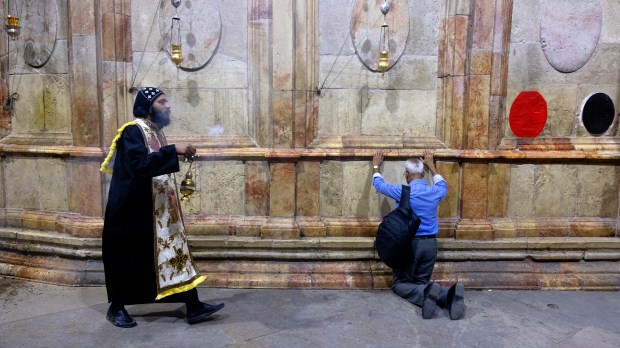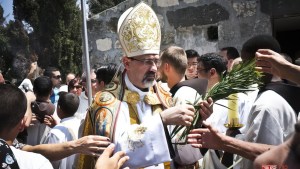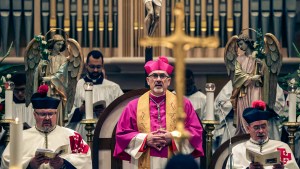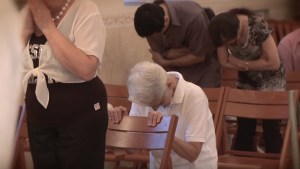According to an official of the Catholic Near East Welfare Association (CNEWA) in Israel, many Christians in the Holy Land these days are studying Greek.
Why? Because things are getting so bad for Palestinian Christians that the nearby island of Cyprus looks like a good place to settle for those fleeing violence and anti-Christian discrimination.
As the world observes the International Day of Peace and the National Day of Prayer for Peace in the Holy Landon September 21, Joseph Hazboun, Regional Director of CNEWA in Jerusalem, is calling on Christians in the West to remember Palestinian Christians, whom he says are direct descendants of the first Christian community of Jerusalem. That fact, he said, is supported by the historian Robert Louis Wilken, who said in his 1994 work called The Land Called Holy, that “they are, as it were, the only indigenous Christian community in the world.”
“Today, with the increased levels of violence within the Arab communities in Israel, more Palestinian Christians are closing their businesses, unable to pay protection money, or are afraid for their lives and those of their families,” Hazboun said. “In fact, many have started to learn Greek in the hopes of purchasing homes in nearby Cyprus, to flee the violence.”
He recalled a recent discussion among a group of Palestinian Christian youth about the importance of remaining steadfast and hopeful in the Land of Jesus.
“One teen remarked, ‘In view of the economic hardships and political instability, the occupation and rising fundamentalism, where we Christians face extreme difficulties and feel unwelcome, why not pack our bags and return to Europe?’” Hazboun recounted.
Return to Europe?
He was surprised by the statement about returning to Europe and discovered that some Palestinian Christians believe they originally came from Europe, while Palestinian Muslims originated from present-day Saudi Arabia.
“This is due to misinformation in the Palestinian curriculum, which cites that Palestinian history begins with the Arab conquest of Palestine, without any indication of the first seven centuries of Christianity in the Holy Land,” he explained. “The religious instruction in Palestinian Christian schools and in local parishes focuses on faith-building rather than Christian history in Palestine. This has led to a lack of awareness among many Palestinian Christians on the history of Christianity and the first Christian communities of the Holy Land in the 1st century AD.”
At the same time, he said, Islamic fundamentalism is spreading in Palestinian society, mainly as a result of the rise of the Islamic State group — ISIS — in the Middle East, the literal interpretation of religious texts and teachings, as well as the unresolved conflict and occupation of the Palestinian territories.
“Fundamentalists, it seems, are also reverting to religious texts to convince the Palestinian Muslim community of Muslim superiority – expounding misinformation,” he lamented. And a “recent shift in Israel’s political realm” has been accompanied by “more physical attacks on church property as well as offenses made against Christian religious leaders and lay members.”
He warned that losing the Christian element in the midst of the Palestinian-Israeli conflict “will contribute towards changing the political struggle between occupied and oppressed into a struggle between an advanced country (Israel) and Islamic fundamentalism.”
“Historically, Christians have enjoyed certain levels of freedom and respect within their respective communities and countries in the Middle East. ISIS and the manipulation of religion as a way to oppress people have led to the emigration of hundreds of thousands of Arab Christians from Iraq and Syria, and Palestine,” said Bazoun.
“On the International Day of Peace and the National Day of Prayer for Peace in the Holy Land, September 21, we remember in a special way the Christians in the Holy Land and the Middle East. We ask our brothers and sisters in [the West] to pray for peace for our people here. We hope for a day when our young people will rediscover their roots, remain steadfast in their homeland, and regain the ability to live their lives with dignity, in freedom.”




